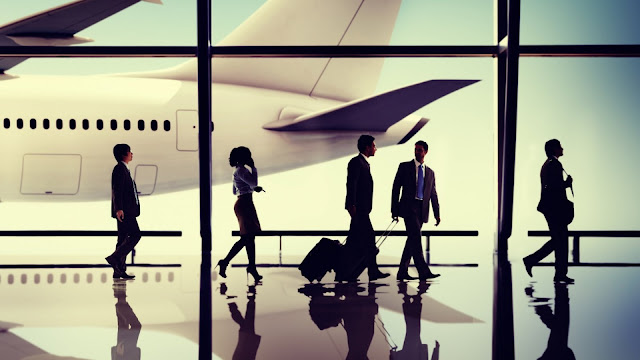The U.S. hotel industry reported the highest room rate in July 2022 on a nominal basis. According to the STR (Smith Travel Research) data, the key performance indicators for the industry include:
- Occupancy: 69.9%
- ADR (average daily rate): $159.08
- RevPAR (revenue per available room): $110.73
Using June 2019 as a reference point, the industry reported a -5.4% percent change in occupancy, a +17.5 percent change in ADR, and a +11.2 percent change in RevPAR for the month. If inflation is ignored, the hotel industry had already recovered in ADR and RevPAR, exceeding the pre-pandemic level. This recovery is driven by the rate instead of occupancy.
Yet, there is no real sense of recovery without the business travelers
AHLA projected that business travelers would make up 43.6% of the room revenues for the hotel industry in 2022, down from 52.5% in 2019. That is a $21 billion difference. Although there are more “bleisure” (business + leisure) travelers in the market, the industry still needs business travelers to support its recovery.
When will business travelers come back?
It depends on how you see the market. Earlier this year, corporate travel managers observed an upward trend in booking activities for business travel. They were optimistic about the outlook. Global business travel spending is projected to have a year-to-year increase of 34% in 2022 to $933 billion. Still, that is far from the $1.4+ trillion in business travel spending in 2019.
Others are not as positive about the market outlook. A more recent update suggested that business travel spending might not recover to the pre-pandemic level after all until 2026, two years later than the earlier projection. Such an adjustment was made after inflation, labor shortage, and geopolitical issues were put into consideration.
When do you expect to see a comeback of business travel? How will business travel evolve from pre-pandemic to post-pandemic?
References
Josephs, L. (2022, April 15). Business travel spending might not return to pre-pandemic level until 2026. CNBC News. Available via https://www.cnbc.com/2022/08/15/business-travel-spending-might-not-return-to-pre-covid-levels-until-2026.html
Kwok, L. (2022, May). Groups to have robust come back 2022. The Hospitality News Magazine, 2(4), p. 34.
STR. (2022, August 19). STR: U.S. hotel performance for July 2022. STR.com. Available via https://str.com/press-release/str-us-hotel-performance-july-2022


Comments
Post a Comment